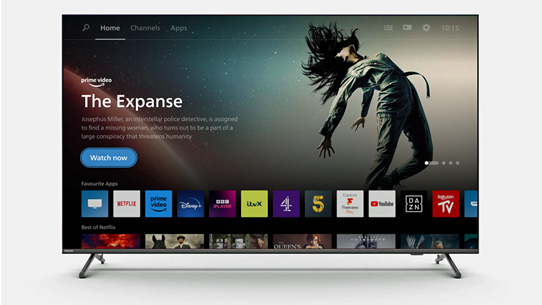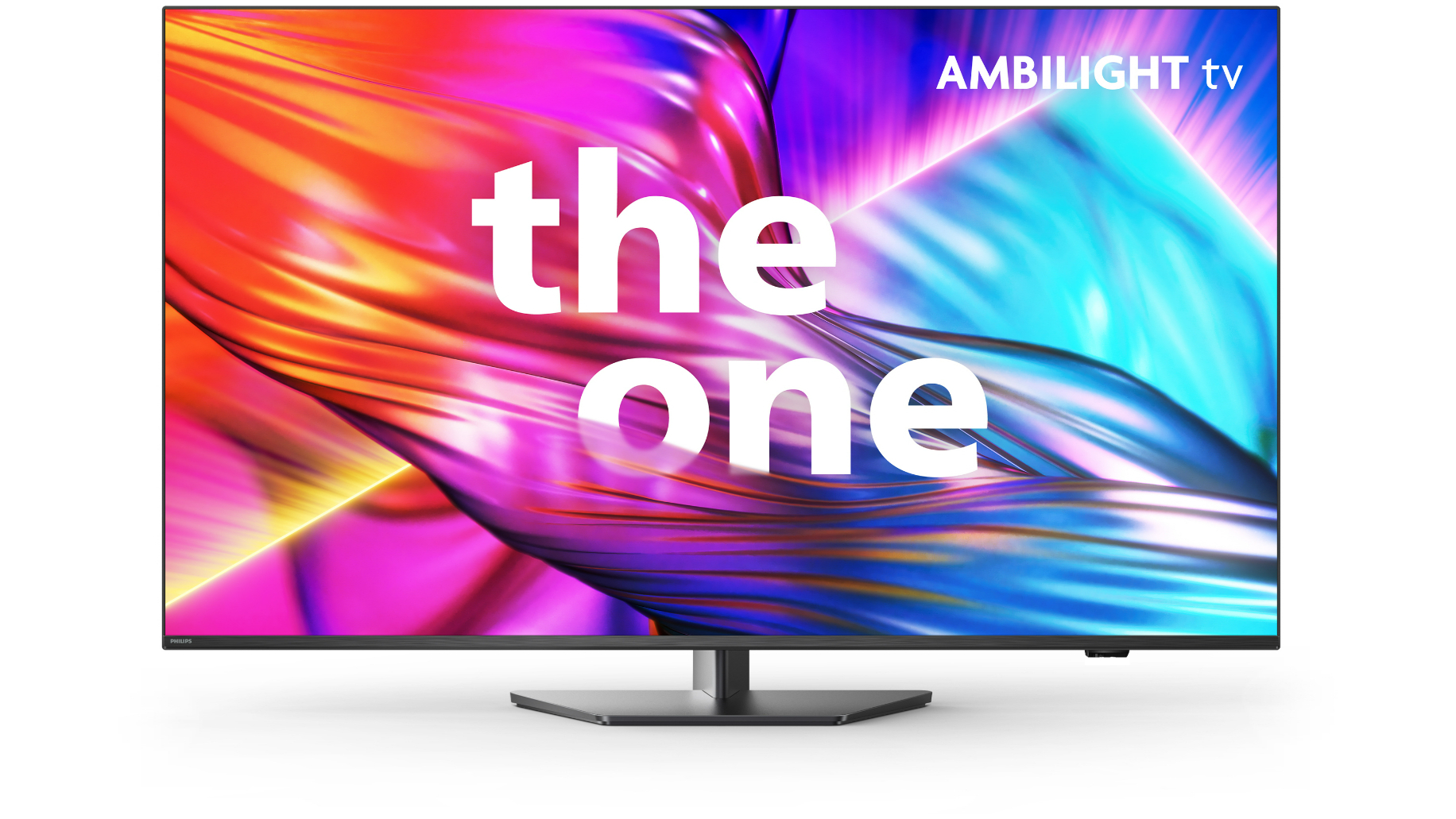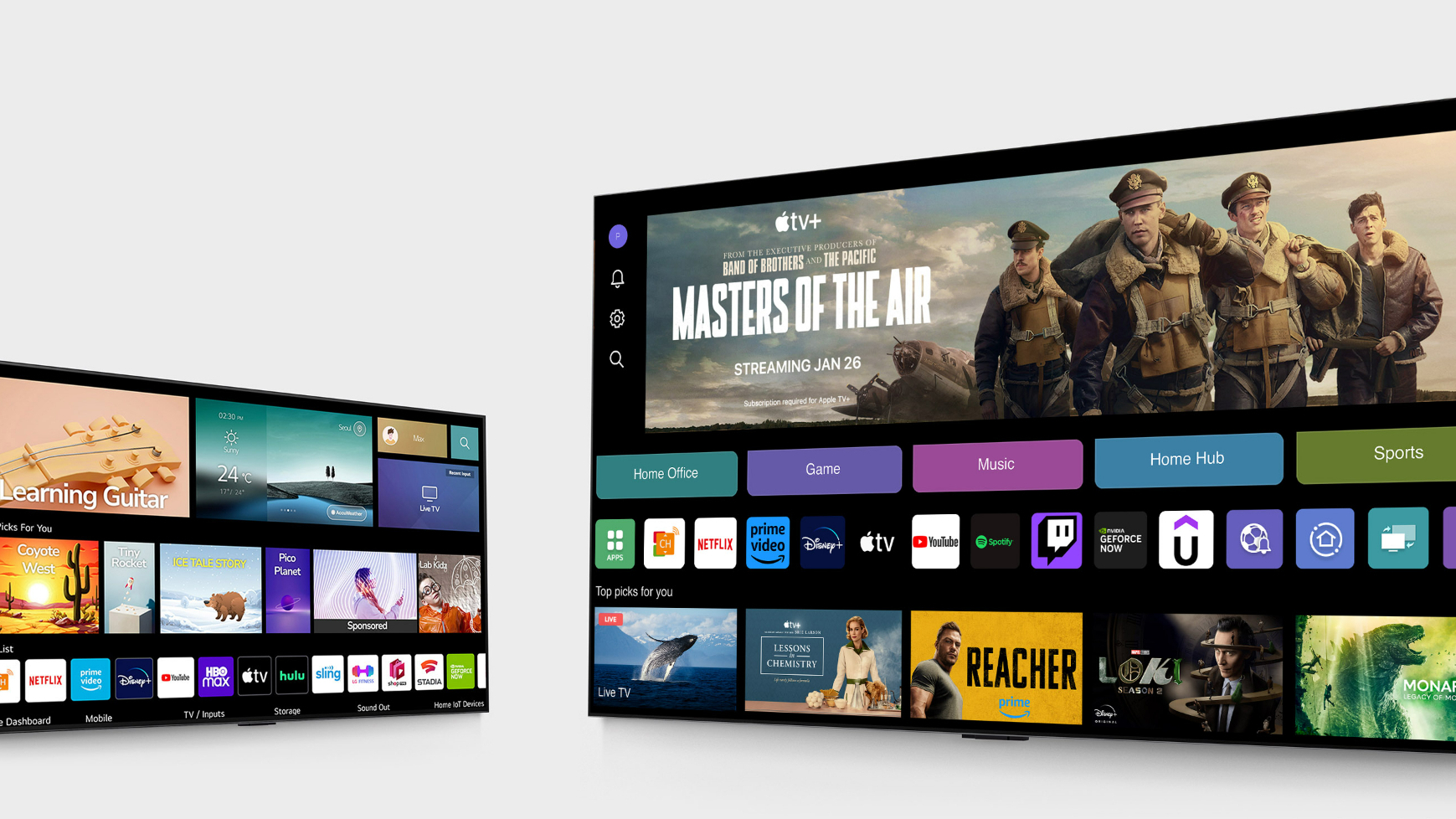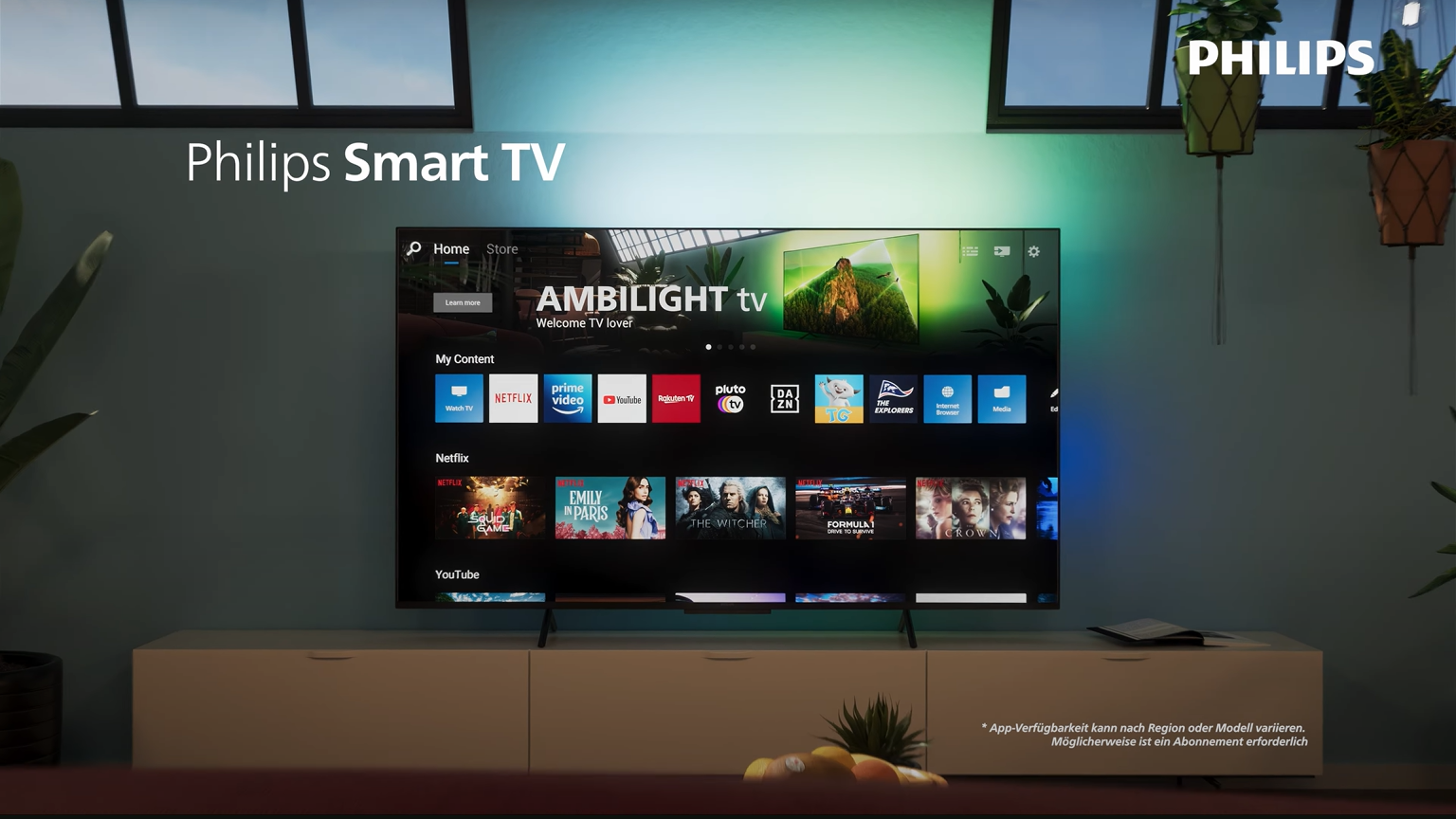What is Titan OS? Philips' new TV operating system explained
How does it stack up to webOS, Tizen and Vidaa?

Philips made a surprise announcement alongside its new TV lineup, with news that it will be moving away from Google TV with some of its lower-end models for 2024. Instead, it will launch Titan OS, an operating system developed by Titan OS (bonus points for confusing naming convention), on its entry-level OLED TV and its Mini LED and LCD sets releasing this year.
Not much is known about the operating system as yet. Still, based on what we've seen already, and on our experience with similar operating systems, we're starting to piece together an idea of what Titan OS is all about.
What is Titan OS?

Philips hasn't tied itself down to a single operating system for its TVs for some time now. Just last year it traded in Android TV for Google TV, which makes the sudden departure from the software already raise some questions.
Visually, it seems like Titan OS is very similar to Google TV. We're yet to see it fully in action, but from a brief glimpse, we can see it features a very similar layout to its home screen. With navigation options along the top of the screen including a search function, channels page and app page, a large content suggestion window in the middle, plus two rows running along the bottom of the screen with favourite apps and more content, suggestions from featured streaming services.
We can't see any immediate flaws with the user interface, although we'll need to use it for ourselves before we pass any final judgment.
TP Vision (which licenses and manufactures Philips TVs in Europe) also highlights the operating system's capability when it comes to generating advertising revenue. In fact, a subsidiary of Titan OS called Titan Advertising will launch later this year alongside the rollout of Titan OS on these Philips TVs.
Philips claims that Titan will "enable TV manufacturers to extend their business beyond hardware", allowing them to access "continuous revenue streams for the 40 per cent of the TV market that lacks its own operating system". This is likely what drew the attention of UK technology retailer Currys, which has also gotten in on the Titan OS action.
Which TVs will get Titan OS?

In a recent conversation with Philips' senior director of product strategy and planning, Danny Tack, we received some clarification on which TVs will receive the new Titan OS system, and which will keep Google TV. The key differentiation appears to be which processor these TVs are using; the higher-end and more powerful chipset will keep Google TV, while the lower-end and less powerful one gets Titan OS.
TVs powered by the MediaTek Pentonic 1000 SoC (system on a chip) and 8th Gen P5 AI Dual Engine processor, including the OLED+959, OLED+909 and OLED809, will retain Google TV as they serve as the upper mid-range to flagship models in Philips' 2024 lineup. In contrast, TVs powered by a Novatek SoC and the 7th Gen P5 processor, including the OLED759, 'The One' (PUS8909) and the PML9009 Xtra Mini-LED TV, will run Titan OS.
Interestingly, some non-Philips TVs will be getting Titan OS too, thanks to a "strategic partnership" with UK technology retailer Currys. A selection of JVC TVs will also receive the operating system, although no specific models have been revealed quite yet.
What apps and services are available on Titan OS?
App compatibility is looking solid on Titan OS. On its website, it lists a strong lineup of content partners including Netflix, Amazon Prime Video, Disney Plus, Pluto TV, YouTube, Rakuten and even Tidal for music streaming. Alongside the global streaming options, there are a selection of UK-specific apps, including BBC iPlayer, Channel 4, ITV X and My 5.
There do appear to be a few omissions though, with Apple TV being curiously absent; that includes both the full Apple TV and the Apple TV+ streaming apps. Now (formerly Now TV) also appears to be absent currently, however, both services could be added to the platform at a later date, or just not been shown off in any pre-release materials that we've seen thus far.
How does Titan compare to the competition?

It's too early to judge how well Titan OS stacks up against the competition, but we can use our experience with other smart TV operating systems to begin collecting our thoughts. Overall, it doesn't seem particularly special or unique, and while that might sound harsh, it's not necessarily a dig.
We appreciate a streamlined, straightforward and useful operating system, as it tends to be easier to navigate and hold up better over time in our experience. Compared to other in-house OS options such as webOS (LG), Tizen (Samsung) and Vidaa (Hisense), Titan OS seems to be a bit more stripped down and back-to-basics, which makes sense considering it'll be featured on TVs with less powerful internal components.
While the likes of webOS and Tizen offer more in the way of features, such as extensive video game streaming options and a wider selection of apps, Titan OS certainly has potential, especially considering it's only just getting started.
MORE:
Take a look at Philips' new 2024 TVs
LG updates webOS for 2024: now with five years of free updates
Check out our picks for the best TVs
Get the What Hi-Fi? Newsletter
The latest hi-fi, home cinema and tech news, reviews, buying advice and deals, direct to your inbox.
Lewis Empson is a Senior Staff Writer on What Hi-Fi?. He was previously Gaming and Digital editor for Cardiff University's 'Quench Magazine', Lewis graduated in 2021 and has since worked on a selection of lifestyle magazines and regional newspapers. Outside of work, he enjoys gaming, gigs and regular cinema trips.
-
csd I would assume that Titan OS is to replace Saphi on Philips’ lower end TVs. These never had Android or Google TV.Reply

